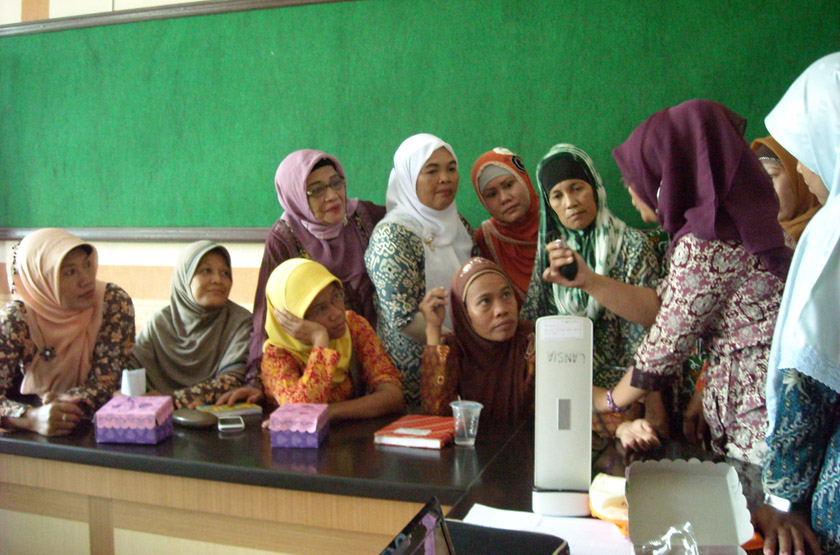Indonesia is among the world’s five largest countries by population with more than 260 million individuals—and millions of these people are over 64-years-old. With such a large number of elderly people, there is a real need for comprehensive and quality geriatric care in Indonesia.
Such is the case in Tarakan, North Kalimantan, where Dr Rina Kurniasri Kusumaratna, a lecturer and researcher at Universitas Trisakti, often conducts research. “One rukun warga, the administrative unit of a neighbourhood, could have up to 20 elderly among its population,” she said.
Tarakan District Health Office has been sending doctors, midwives, and nurses to study health management at the University of Adelaide since 2009. The first two years were funded by scholarships from both the Australian and Indonesian governments, and the following years by the Health Office itself. Recently, the Health Office funded two doctors and the head of two pilot public health centres to study geriatric care at the Royal Adelaide Hospital for 12 and 16 weeks.
Dr Rina, an Australia Awards Fellowship alumnus in Health Services Management Training from the University of Adelaide, said the Health Office saw the need to disseminate the knowledge gained while in Australia.
With the support of the Health District and Secretary Mayor of Tarakan, and utilising funds from the Australian Government’s Alumni Grant Scheme—which allows individuals or groups of Australian alumni to access funding to boost Indonesia’s development and build strong and positive relationships with Australia—Dr Rina helped organise follow-up workshops and training when staff return to Indonesia. Dr Bruno Franchi from the Royal Adelaide Hospital and Dr M.Afzal Mahmood from the University of Adelaide joined the effort to train the primary care staff, community volunteers, and the elderly themselves.
Prior to the training, the team conducted field visits to better understand the local context. “The knowledge on geriatric healthcare in Australia must be seen through the Indonesian context to ensure efficient and beneficial implementation on the field,” Dr Rina elaborated. “It was very heartening to see that the volunteers are made up of not only the elderly, but also the younger generation, and at quite a large number.”
The field visits provided information on what training was needed the most. Those aged 65 and older are prone to sudden weight loss and risk of falling. They also may be neglected by the family—not due to lack of love, but rather due to lack of knowledge on how to properly care for them.
In areas with a shortage of primary care staff, the team trained volunteers and family members to do fall and malnutrition risk assessments, and to monitor blood pressure as an indicator of hypertension. Based on the data gathered, Dr Rina wrote a guide book on how to conduct health promotion activities.
Unexpectedly, while conducting interviews on geriatric care, the team heard concerns regarding maternity healthcare as well. This prompted separate training for midwives on community maternity health service management, data recording, and patient safety for expectant mothers.
The benefits were also at the administrative level. Prior to the field visits, there were overlaps in data collected by various Health Office divisions, making it difficult to efficiently conduct evaluation and plan field programmes. A recommendation was made and there is a move to streamline data collection.
The continued support of the Health Office, the community, and the Australian Government through the Alumni Grant Scheme has made all this possible. It is said that it takes a village to raise a child. The same can also be said regarding caring for the elderly.



 It Takes a Village to Care for the Elderly.
It Takes a Village to Care for the Elderly.
